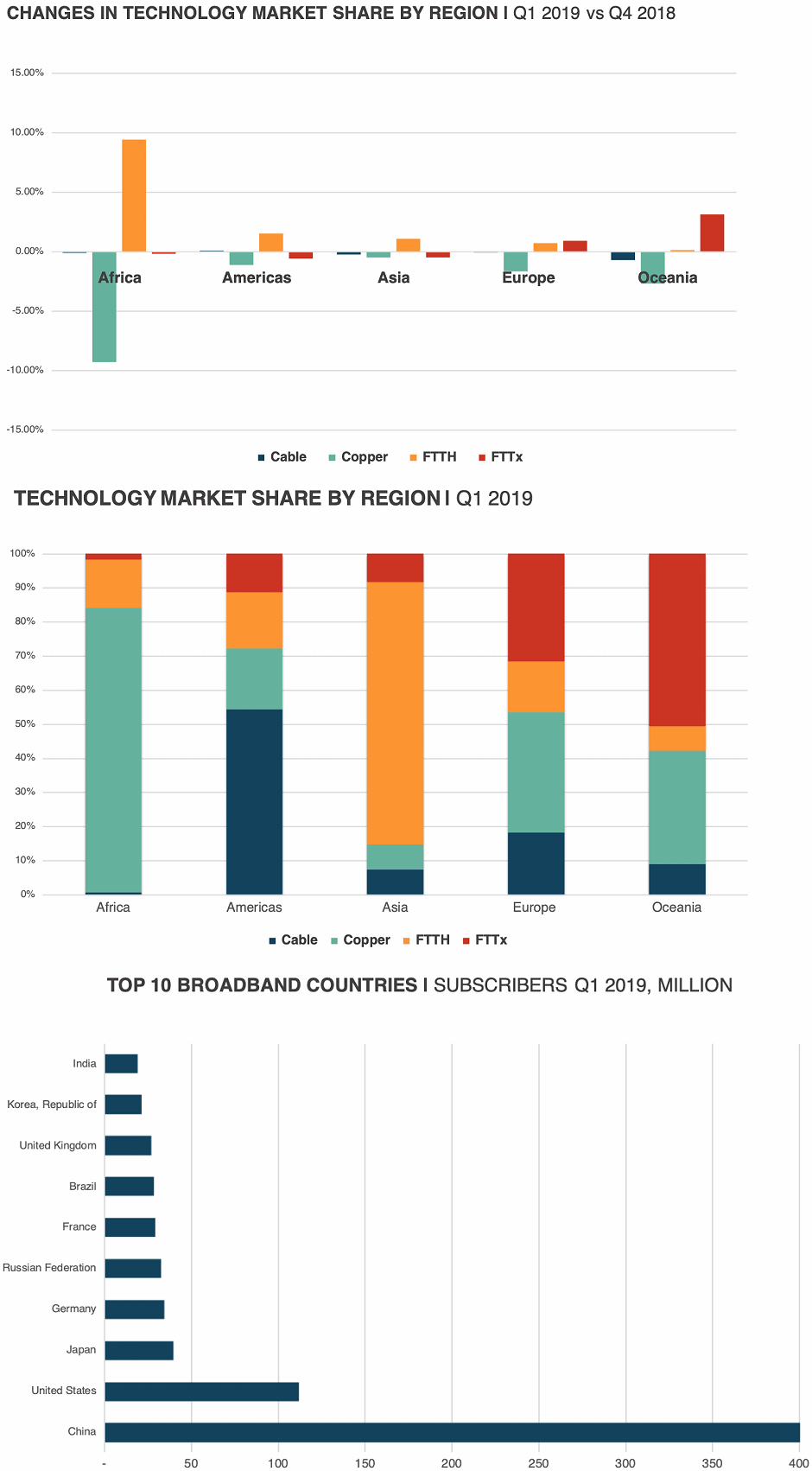Global Fixed Broadband Subs Total 1.047 Billion as Fibre Dominates
A new report has revealed that world fixed broadband subscribers grew by 2.06% (+21.2 million) during Q1 2019 to total 1.047 billion, while older pure copper line ISP connections continued to decline in the face of a rising onslaught from faster fibre optic based connections.
The data from Point Topic notes that pure copper broadband connections (ADSL etc.) fell by another -8.9% in the past year alone, while every other technology saw growth. For example, full fibre (FTTH/P) networks surged by 22%, while fixed wireless networks jumped 17.9%, Satellite services grew 8.5%, Cable networks (HFC DOCSIS platforms like Virgin Media) increased by 4.4% and hybrid fibre (FTTC) networks saw a smaller rise of just 2.4%.
As usual China is still the largest market for “full fibre” growth by far and saw an annual increase of 23%. On top of that they also accounted for 72% of global FTTH net adds in the last quarter alone, although the latter figure is down from 82% some six months ago (Q3 2018). Argentina, Thailand, Philippines, Chile and South Africa among others also saw significant FTTH quarterly growth rates of 53%, 34%, 26%, 20% and 17% respectively.
Advertisement
Given the above it won’t come as much of a surprise to learn that over 65% of all net additions in fixed broadband subscribers came from East Asia, which also maintained the largest regional market share of all subscribers at 47%. Sadly we don’t get any figures for the UK this time around but we can at least see how the technology share has changed across different regions.

We suspect that if the UK had been mentioned then it would continue to have a much improved FTTH growth rate, which has been reflected in several other studies (here and here). Many full fibre operators are in the process of rapidly ramping up their deployments and we expect this to continue over the next few years.
The new Prime Minister is also expected to formalise a much more aggressive FTTH rollout strategy over the next few months, although we have plenty of doubts about his proposed plan and hope those can be overcome (here).
Advertisement
Mark is a professional technology writer, IT consultant and computer engineer from Dorset (England), he also founded ISPreview in 1999 and enjoys analysing the latest telecoms and broadband developments. Find me on X (Twitter), Mastodon, Facebook, BlueSky, Threads.net and Linkedin.
« SSE Enterprise Boost UK Capacity with 5 Optical-Enabled Datacentres

















































Comments are closed